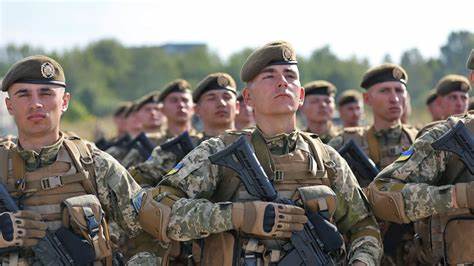Legal support of servicemen during mobilisation
Mobilisation is an important stage in the life of servicemen and women, which is accompanied by many legal aspects. Ensuring proper legal support during mobilisation is key to protecting the rights of servicemen and their families. In this article, we will look at the main aspects of legal support during mobilisation, including verification of documents by a lawyer, legal analysis of documents, obtaining a legal opinion from a lawyer and consultations with a lawyer.
Key steps for legal support of servicemen during mobilisation
The process of mobilising servicemen requires careful legal support. Here are the main steps to consider:
- Applying to the military commissariat. The first step is to contact the military commissariat to obtain information about the mobilisation process and further actions. Legal advice will help you determine what documents you need to prepare and how to act in case of legal issues.
- Preparation of the necessary documents. Soldiers must prepare a certain set of documents for mobilisation. These may include military cards, medical certificates, and identity documents. Legal analysis of documents will help to avoid mistakes and delays in the mobilisation process.
- Legal support during the medical examination. Medical examination is an integral part of the mobilisation process. A lawyer's review of documents and legal analysis of the situation will help ensure that the medical examination is carried out correctly and that all procedures are followed.
Peculiarities of legal support of servicemen during mobilisation
Legal support during mobilisation may differ depending on the country and legislation. Here are some of the main aspects to consider:
- Legal support in countries with developed legal systems. In countries with a developed legal system, servicemen and women can count on high-quality legal support from lawyers and attorneys. Consulting a lawyer will help you learn about your rights during mobilisation and obtain legal protection if necessary.
- Legal support in countries with less developed legal systems. In such countries, it may be more difficult for servicemen to receive legal support during mobilisation. In such cases, it is important to contact international human rights organisations with experience in the region, as well as a military lawyer. Having your documents checked by a lawyer will help you avoid problems with local authorities.
- Legal support in case of disputes. In the event of legal disputes during mobilisation, it is important to get legal advice and a legal opinion from a lawyer. This will help you prepare for court proceedings and protect your rights.
Legal advice and legal analysis of the situation during mobilisation
A lawyer plays a key role in ensuring the successful completion of mobilisation for military personnel. The main areas of assistance include:
- Legal advice. An online lawyer can provide prompt advice on mobilisation, preparation of documents, medical examination and resolution of legal issues that may arise during mobilisation.
- Legal opinion. The legal opinion of a lawyer will help you understand what steps you need to take during mobilisation and how to avoid possible legal obstacles.
- Verification of documents by a lawyer. A legal analysis of the situation and verification of documents by a lawyer will help to make sure that all the necessary documents are properly prepared and comply with the requirements of the law and mobilisation procedures.
Typical problems during the mobilisation of military personnel
Various problems may arise during the mobilisation of military personnel, including
- Denial of mobilisation. This can happen due to lack of necessary documents or health problems. In such cases, it is important to have a written consultation with a lawyer and a legal opinion to prepare an appeal or challenge the decision.
- Delay in undergoing a medical examination. It may be due to a large number of military personnel or other factors. Consulting a lawyer will help to solve these problems and speed up the process.
- Problems with paperwork. Non-compliance of documents with the requirements may result in delays or refusal to undergo mobilisation. Having your documents checked by a lawyer will help you avoid such situations.
The role of human rights organisations and lawyers in the mobilisation process
In addition to lawyers, servicemen can seek help from human rights organisations that provide free legal and advisory assistance during mobilisation.
Amnesty International. This organisation provides advice and legal support to military personnel in different countries, helping to protect their rights during mobilisation.
Legal clinics at higher education institutions. In many countries, there are legal clinics where law students under the guidance of professors provide free assistance to military personnel during mobilisation.
International organisations such as the UNHCR. These organisations can provide support and assistance during the mobilisation process, as well as protect the rights of servicemen and women at the international level.
Question.
How can I get legal support during mobilisation and what documents are required?
Answer.
To receive legal support during mobilisation, you should contact a military lawyer, human rights organisations or international organisations, prepare all the necessary documents and submit the relevant requests. Having your documents checked by a lawyer and getting legal advice will help you avoid mistakes and ensure successful mobilisation.
Appealing against refusal to be mobilised
If you are refused mobilisation or have other legal problems during the process, you have the right to appeal against this decision. A legal analysis of the situation will allow you to assess the legitimacy of the refusal and prepare the necessary documents for appeal. The legal opinion of a lawyer will be the basis for filing an appeal or complaint.
Important aspects of legal support during mobilisation
The following aspects should be taken into account when mobilising military personnel:
- Collection and proper execution of documents. It is important to have all the documents confirming your status and rights during mobilisation.
- Compliance with the requirements of military authorities and legislation. This is necessary when going through mobilisation procedures and further interaction with the military authorities.
- Consultation with a lawyer. Legal support will help you avoid mistakes and ensure timely mobilisation. A lawyer's consultation will help you prepare all the necessary documents and protect your rights.
Legal support of servicemen during mobilisation is an important step in ensuring their legal protection and performance of military duties. Legal advice and legal analysis of the situation will help you to properly draw up documents, appeal against refusals and ensure the exercise of your rights. Having your documents reviewed by a lawyer is a necessary step to succeed in this process.



























